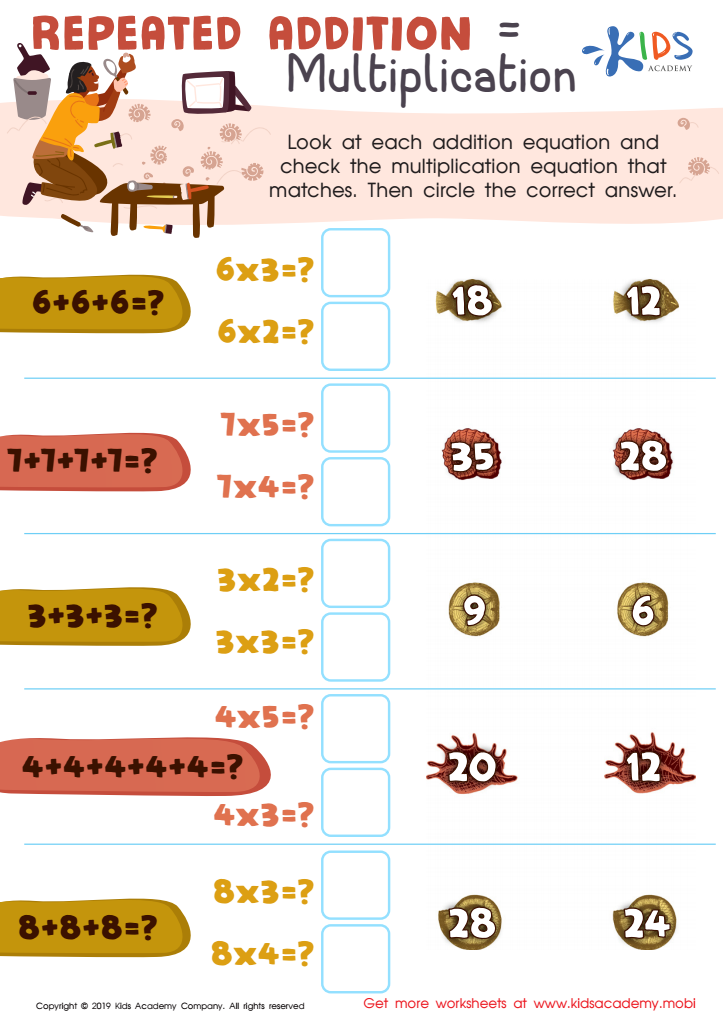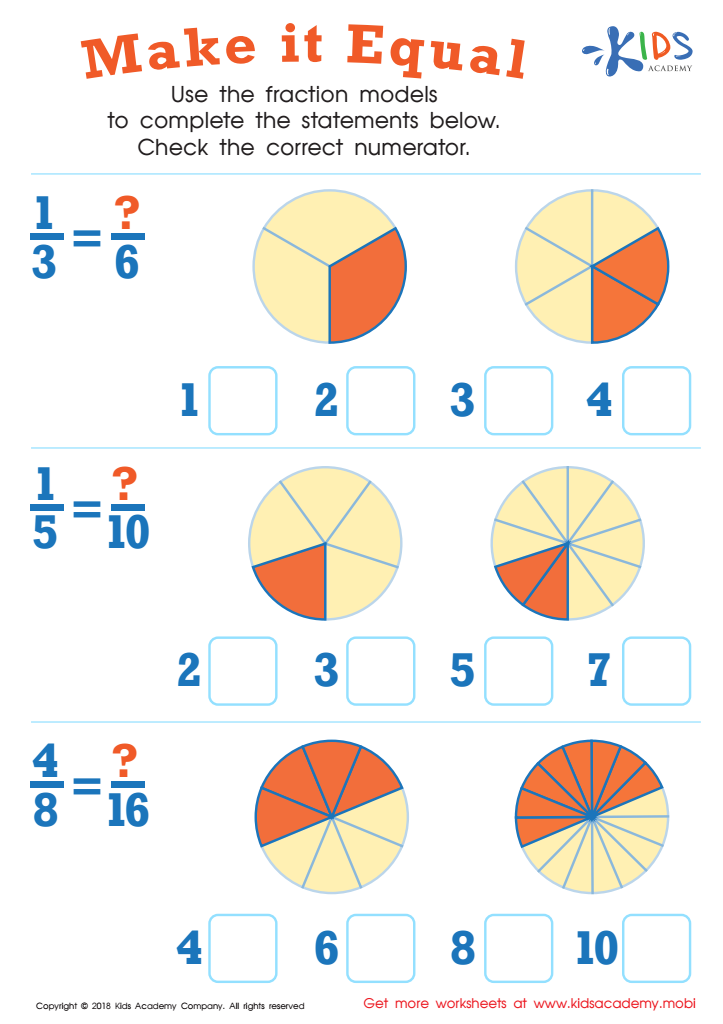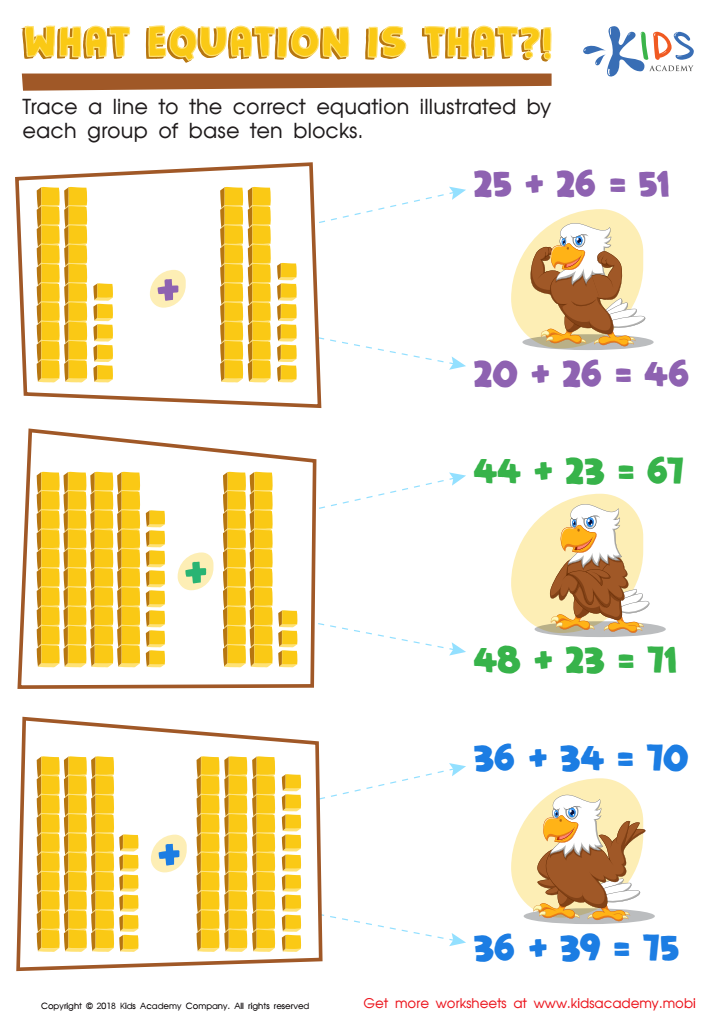Developing problem-solving abilities Normal Math Worksheets for Ages 3-9
3 filtered results
-
From - To
Enhance your child's cognitive skills with our "Developing Problem-Solving Abilities" math worksheets designed for ages 3 to 9. These engaging, age-appropriate activities focus on encouraging critical thinking and the ability to analyze and tackle various math problems. Each worksheet is crafted to challenge young learners, fostering not only their math skills but also resilience and creativity in problem-solving. From simple puzzles to logic games, children will enjoy a fun, interactive learning experience, setting a strong foundation for future math success. Help your child discover the joy of conquering challenges with our thoughtfully designed worksheets today!


Repeated Addition = Multiplication Worksheet


Make It Equal Worksheet


What Equation Is That? Worksheet
Developing problem-solving abilities in young children, particularly in the context of basic math, is crucial for several reasons. From ages 3 to 9, children are in a formative stage where they build foundational skills that impact their future academic success and daily life.
Firstly, problem-solving fosters critical thinking, which enables children to analyze situations, consider multiple solutions, and make informed decisions. This skill is not only applicable in math but also in sciences, literacy, and social interactions. Moreover, early exposure to math-related problem-solving encourages a positive attitude towards mathematics, helping to dispel common anxieties and fostering a love for learning.
Secondly, problem-solving equips children with perseverance. They learn to face challenges, remain resilient in the face of failure, and celebrate their successes. These experiences cultivate patience and determination, traits that are essential for personal and academic growth.
In addition, strong problem-solving skills enhance collaboration and communication. Children often work in teams to solve math problems, promoting interpersonal skills, sharing ideas, and learning to appreciate diverse perspectives.
By nurturing these abilities, parents and teachers lay the groundwork for capable, confident learners ready to tackle complex challenges as they progress through life. Supporting problem-solving in math today can bear significant benefits for tomorrow's innovators and leaders.
 Assign to My Students
Assign to My Students





















